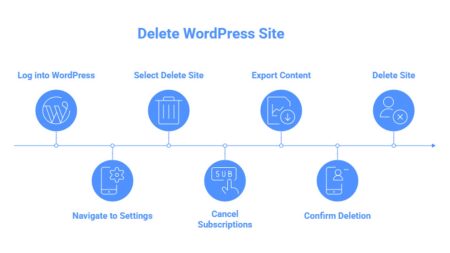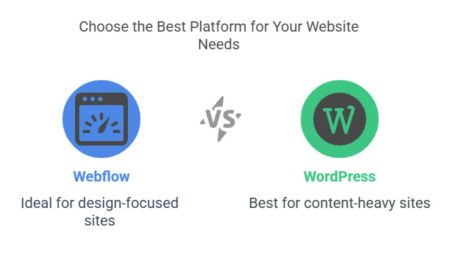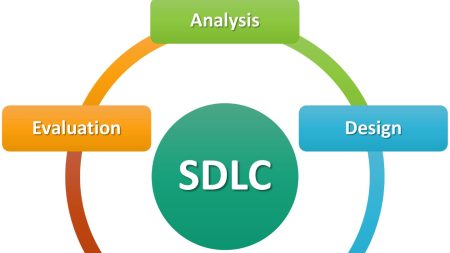Customizing Tech Solutions for Every Business
When it comes to technology, one size rarely fits all. Every business, from startups to multinational corporations, has its own distinct objectives, workflows, and challenges. Off-the-shelf software often falls short, leaving companies trying to fit square pegs into round holes. Enter custom software development solutions – the answer to every unique business need and process. Let’s dive into what custom software can do, why it’s essential, and how it shapes the future of business operations.
What Is a Custom Software Development Solution?
Why need customized software development? Think of a tailored suit. Off-the-rack options may look good, but a custom-made suit fits like a glove. Custom software development works the same way. Unlike standard software, a custom software solution is designed with the user in mind, addressing specific workflows, data needs, and security protocols. These software development solutions come into play across industries, from finance to healthcare to retail, delivering tailored functionality that fuels success. Custom software is developed exclusively for one organization. It’s not a mass-market product but rather an individualized approach to software, honed to suit a company’s inner workings.
Why Custom Software Beats Off-the-Shelf Options?
Statistics show that 45% of businesses find their current software doesn’t meet all of their needsaves room for frustration and inefficiencies. Here’s where customized software solutions step in, helping organizations sidestep the “one-size-fits-all” limitations. Here’s how custom software development solutions excel:
- Specific Needs: Custom software is built for your exact requirements. No unused features, no compromises.
- Greater Control: Your team controls every aspect of the solution, ensuring compliance, security, and flexibility.
- Scalability: As your business grows, so can your custom development software, without the fear of hitting a wall.
- Cost-Effective in the Long Run: While initial development might seem pricey, custom development solutions save money over time by eliminating license fees and ongoing maintenance costs tied to pre-made software.
Consider this: A study from GoodFirms reports that 85% of software developers see tailored software solutions as highly adaptable, meaning they can grow as the business grows without requiring a complete overhaul .
Understanding the Types of Custom Software Solutions
Just as businesses differ, so too do their custom software needs. The right type of custom software development model depends on what an organization seeks to accomplish. Here are the most common types:
- Enterprise Resource Planning (ERP): Integrates all facets of a business, including finance, HR, supply chain and customer service.
- Customer Relationship Management (CRM): Focuses on managing a company’s interactions with current and potential customers.
- Content Management System (CMS): Ideal for companies needing to manage, organize, and publish digital content.
- E-commerce Solutions: Tailored for online retailers, offering customizable features for inventory, checkout, and customer service.
Each type of customized IT solutions (for example, custom web apps) can be molded to fit the exact demands of a business, providing specialized tools and features.
The Custom Software Development Process
Rome wasn’t built in a day, and neither is a custom software solution. Developing a software solution requires collaboration, vision, and precision. Here’s a look at the key stages involved:
Discovery and Requirement Gathering
This is the foundation. The goal is to understand what makes your business tick and what specific problems the software must solve. Interviews, questionnaires, and workshops uncover every requirement.
Planning and Design
Once requirements are clear, planning takes center stage. Here, developers map out the solution’s architecture. The design phase focuses on user interface and experience, ensuring the software is intuitive and easy to navigate.
Development and Coding
This stage is where ideas come to life. Developers write code, integrate databases, and build all necessary features.
Testing and Quality Assurance
Bugs can ruin any software experience, so rigorous testing ensures smooth performance. This step uncovers any kinks before deployment.
Deployment and Training
Now, the software is ready for action. Deployment involves moving it to a live environment, followed by training sessions to familiarize the team with the new tool.
Maintenance and Support
Even the best custom software solutions need upkeep. Ongoing support ensures the software stays efficient, secure, and compatible with other tools. Custom software development is a marathon, not a sprint. The process of building customized software is deliberate. Quality is not rushed, and each phase adds value. While off-the-shelf software may be a sprint, custom development is a marathon that guarantees precision and purpose.
Benefits of Custom Software Development Solutions
Investing in a customized solution often brings measurable benefits over time. The most impactful advantages include:
- Enhanced Productivity: Custom software eliminates the need for multiple tools by consolidating functions. Employees no longer waste time toggling between systems.
- High-Level Security: With cyber threats on the rise, security remains paramount. Custom software allows businesses to embed specific security protocols suited to industry regulations.
- Improved Decision-Making: Software tailored to collect relevant data enables better analysis, leading to well-informed decisions.
- Cost Savings: While custom software requires an initial investment, it eliminates subscription fees and integration costs that come with ready-made options.
A recent survey reveals that 78% of organizations that switch to custom software experience a productivity boost of at least 25% within the first year.
Best Practices of Custom Development Solutions
The journey to a customized software solution requires the right approach and mindset. Here’s a rundown of the best practices that companies should consider:
- Engage Stakeholders from the Start. Building custom software without consulting end-users is like guessing what someone wants for their birthday. Engage stakeholders early, ensuring the software aligns with user needs and preferences.
- Prioritize Scalability. Today’s solution should meet tomorrow’s demands. As businesses grow, so do their software needs. Build with scalability in mind to prevent major overhauls down the road.
- Adopt Agile Development. The agile methodology, which emphasizes iterative progress and ongoing feedback, has transformed the development landscape. According to a survey by PMI, organizations that adopt agile are 28% more successful than those that stick to traditional methods.
- Focus on security breaches can be costly. A report by IBM reveals that the average data breach costs businesses $4.24 million . Custom software can incorporate aurity measures tailored to your company’s needs.
- Test Rigorously. Testing should be baked into every phase of development. Regular testing uncovers issues before they affect users and prevents small problems from escalating into major setbacks.
Real-World Applications of Custom Software Solutions
Many industries stand to benefit from custom software. Let’s take a look at some examples of industries for custom app development:
- Healthcare: Hospitals require software to manage patient records, appointments, and billing. Custom solutions provide secure access to sensitive data and streamline workflows.
- Finance: Custom software helps financial institutions automate tasks, comply with regulations, and manage risk. It’s a game-changer in an industry where accuracy and security are paramount.
- Retail: Retailers use customized software to track inventory, personalize customer experiences, and optimize logistics. A study found that 72% of retailers report better inventory management with custom solutions .
Common Myths About Custom Software Solutions
Custom software development is sometimes surrounded by misconceptions. Let’s separate fact from fiction:
Myth 1: Custom Software is Expensive and Overkill
While the initial investment may be higher, custom software saves money over time. With off-the-shelf software, you’re often locked into licensing fees, forced upgrades, and workarounds.
Myth 2: Only Big Companies Need Custom Solutions
On the contrary, small and medium-sized businesses (SMBs) also benefit. Many SMBs turn to custom IT services to stand out in competitive markets, where personalized customer service and unique workflows matter.
Myth 3: Development Takes Too Long
While custom software does take time, agile practices and effective planning can ensure a smooth development process. Today, many software developer solutions use frameworks that allow for faster turnarounds without sacrificing quality.
The Future of Custom Software Development Solutions
As technology advances, so does the field of custom software. Some key trends are emerging that will shape the future:
- Artificial Intelligence (AI) and Machine Learning (ML): Custom enterprise software solutions are increasingly using AI and ML for predictive analysis, automation, and personalized experiences.
- Blockchain: Blockchain technology provides additional layers of security, ideal for industries like finance and healthcare that handle sensitive data.
- Internet of Things (IoT): Custom software is driving IoT applications across industries, from smart homes to smart factories. A report from Statista predicts there will be over 75 billion IoT-connected devices by 2025 .
Custom Software and the Evolution of the Workplace
The rise of remote work has only increased demand for customized solutions. With distributed teams, businesses need tools that support seamless collaboration and cloud integration. Custom software enables businesses to bridge geographical gaps, ensuring all employees have the tools they need.
Is Custom Software Right for Your Business?
It all boils down to one question: Does your current software leave something to be desired? Custom software solutions address gaps, remove redundancies, and provide a seamless fit for unique business needs. But beyond immediate functionality, a customized software solution grows with you. In the constantly changing world of business, custom software isn’t just an option – it’s the competitive edge. From cutting costs to boosting productivity and streamlining operations, custom software development is an investment in the future. Why settle for off-the-shelf when you can have software that fits like a glove? If you’re considering custom software, remember: the journey is as important as the destination. Custom solutions are a tailored path to better efficiency, more innovation, and, ultimately, greater success.











